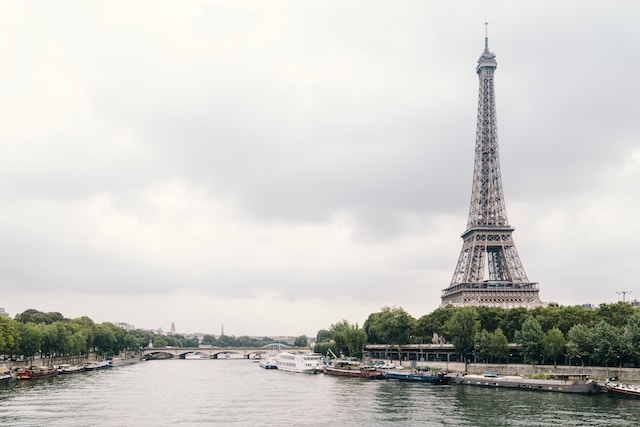Education isn’t just about absorbing facts and figures; it’s a holistic journey encompassing learning, growth, and moments of relaxation. For students embarking on an exploration of Europe, finding an equilibrium between academic pursuits and leisure is essential for a fulfilling educational experience. How can educators and students alike inspire a passion for learning while ensuring ample time for relaxation and exploration amidst Europe’s diverse landscapes?

Cultivating Curiosity through Immersive Learning
Europe stands as a treasure trove of history, culture, and academic opportunities. The key to inspiring students lies in igniting their curiosity. The region’s iconic landmarks—be it the Acropolis in Athens, the Louvre in Paris, or the Colosseum in Rome—aren’t just tourist attractions but interactive classrooms. Encourage students to delve into the stories behind these architectural marvels, enabling them to grasp the historical, cultural, and artistic significance embedded in each monument.
Furthermore, Europe’s vibrant cities offer immersive experiences beyond traditional learning environments. Encourage students to engage with local communities, immerse themselves in customs, and explore the heartbeat of city life. Visiting local markets, attending cultural festivals, or participating in workshops fosters not just cultural appreciation but also empathy towards diverse traditions.
Flexible Learning Approaches
Flexibility in educational approaches is pivotal to creating a comprehensive experience. Blend structured academic sessions with experiential learning opportunities. Arrange engaging workshops or seminars led by local experts, offering unique insights into subjects like art history, architecture, or environmental studies. Complement these sessions with guided tours or interactive activities, bridging academic concepts with real-world experiences.
Moreover, technology has become an integral part of modern education. Alongside these academic experiences, consider integrating specialized writing services into the educational journey. These services cater to students seeking guidance in crafting well-researched, articulate essays and papers across diverse subjects. These services are also a good choice for purchasing paper for money for those students who want to save their valuable time and delegate their assignments. They not only supplement traditional learning resources but also aid in honing students’ writing skills while providing valuable insights into structuring arguments and citing credible sources. Encouraging students to engage with such services not only broadens the spectrum of learning but also nurtures self-directed study habits as they interact with these resources beyond the constraints of a physical classroom.
Strategic Itineraries Encouraging Exploration
Crafting a balanced itinerary is crucial to ensure students have time for both structured learning and self-exploration. Schedule educational engagements during mornings or afternoons, leaving evenings free for students to discover the charm of European streets at their leisure. Allow them to explore local cafes, interact with residents, and experience the rhythm of daily life in European cities.
Additionally, plan visits to lesser-known yet culturally significant places. Encourage students to venture off the beaten path, exploring hidden gems that might not be in guidebooks. This not only offers a unique perspective but also encourages a sense of curiosity and discovery.
Embracing Nature and Wellness
Europe’s natural landscapes provide a serene retreat amid academic endeavours. Consider including visits to natural wonders like the Swiss Alps, the picturesque coastlines of Greece or Portugal, or the tranquil forests of Scandinavia. Nature offers a different kind of learning experience—lessons in biodiversity, ecology, and the interplay between humans and their environment.
Incorporate wellness activities such as mindfulness sessions, yoga in scenic locales, or guided nature walks. These activities not only promote relaxation but also instil mindfulness and self-awareness, essential skills for coping with academic stress and fostering a balanced lifestyle.
Encouraging Reflection and Integration
Reflection is the bridge between experience and learning. Allocate time for students to reflect on their experiences, whether through group discussions, journaling, or guided reflective exercises. Prompt them to connect their travel encounters with academic learning, encouraging critical thinking and synthesis of information. Create platforms for students to share their insights, fostering a collaborative learning environment where diverse perspectives are valued and integrated into academic discussions.
In addition to these reflective exercises, integrating writing services can enhance students’ abilities to articulate their reflections. These services offer students the opportunity to refine their written expression, ensuring that their reflections and insights are communicated effectively. By seeking assistance from expert writers and editors through these platforms, students can strengthen their communication skills, presenting their thoughts cohesively and convincingly. This integration not only refines their writing prowess but also equips them with a valuable skill set for future academic and professional endeavours. You can find the list of top writing services here: urbanmatter.com.
Fostering Lifelong Learning and Relaxation
The educational journey through Europe shouldn’t be viewed as an isolated event but as a catalyst for lifelong learning and personal growth. Encourage students to continue exploring, reading, and engaging with global perspectives beyond the trip. Emphasize the importance of balance in life—between academic pursuit and personal rejuvenation. Inspire them to seek moments of relaxation, savour cultural experiences, and find joy in continuous learning.
Conclusion
Balancing education and relaxation while exploring Europe isn’t just about ticking off landmarks; it’s about fostering a holistic educational experience that inspires a lifelong love for learning. By blending academic engagement with leisure, educators can cultivate an environment where students thrive academically and personally, creating memories and insights that endure far beyond their time in Europe.
